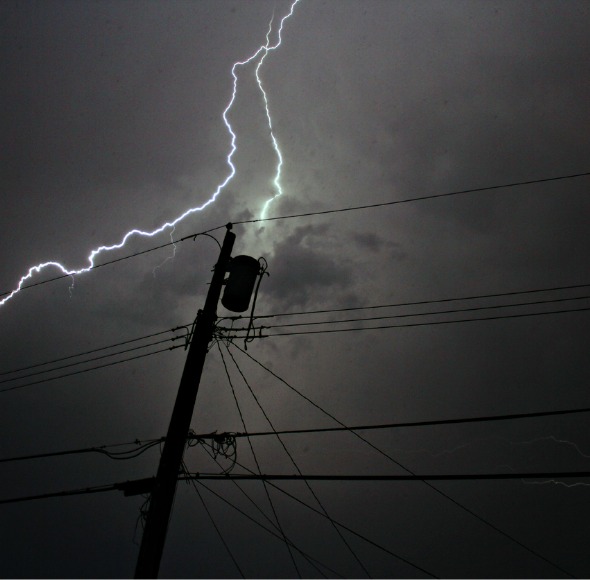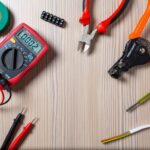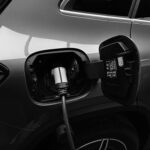Power outages can disrupt everyday life and, in certain situations, even become dangerous. Whether caused by extreme weather, power grid failures, or unexpected events, these outages highlight the need for a reliable backup power system. A system ensures that your home remains functional, safe, and comfortable during blackouts.
This article will discuss the different types of backup power systems available and how to choose the best one for your home. We will explore options such as Generac portable generators, home battery backup power systems, and solar power generators for home use. You’ll learn what to consider when selecting a system that meets your needs while ensuring long-term reliability.
Why a Backup Power System Is Essential for Every Home
A backup power system for home use is an investment that provides peace of mind. It can keep critical appliances running, protect sensitive electronics, and ensure comfort during an outage. Whether dealing with a few hours without power or a prolonged blackout, the right emergency power supply for homes will keep your household running smoothly.
Some of the key reasons why you need a backup power system include:
- Uninterrupted Power for Appliances: A battery backup for home appliances ensures that your essential systems, such as refrigerators, heating, and cooling units, remain operational.
- Medical Needs: If you or a loved one relies on electrically powered medical equipment, having a home battery backup power system or emergency power supply battery can be lifesaving.
- Comfort and Convenience: Long power outages can be uncomfortable, especially in extreme weather conditions. You can keep your home functioning without disruption with the right emergency power supply.
Types of Backup Power Systems
Several backup power systems exist, each offering different power output levels, ease of use, and pricing. Let’s take a closer look at the most popular backup power solutions for homeowners, including Generac portable generators, solar power generators for your home, and battery backup for home power outage scenarios.
1. Generac Portable Generators

Generac portable generators are among the most widely used portable backup power systems. These generators are versatile and provide a quick, temporary solution when power is lost. Depending on their size and power output, they can run various appliances.
- Pros: Generac portable generators are easy to transport and set up, offering a flexible power solution. Generac generator prices are also affordable, making them a popular choice for homeowners seeking cost-effective solutions.
- Cons: These generators run on fuel, typically gasoline or propane, which requires storage and refueling during extended outages. Additionally, they produce noise and emissions.
2. Generac Generators for Your Home
In addition to portable generators, Generac has generators that can easily connect to your home’s electrical systems. These generators are both more powerful and quieter than portable generators. They automatically kick on when you lose power. West Bay electricians install these generators and we can answer any questions you may have.
- Pros: They are quieter than portable generators and they tie into your electrical system. When the power goes out on your property it automatically kicks on. They come with wireless controls for your convenience.
- Cons: The only con is that these systems are more expensive than their portable counterparts.
3. Home Battery Backup Power

Another solution is a home battery backup power system. These systems store energy and provide uninterrupted power during outages. Battery backup for home appliances is ideal for homes with frequent power outages, as these systems can automatically activate when needed. Tesla’s Powerwall is a powerful home battery backup power system. West Bay electricians can install the Tesla Powerwall as a way to store excess energy from the grid or other electric systems such as solar panels.
- Pros: Battery backup systems are quiet and require no manual intervention once installed. Depending on the system’s capacity, they can provide power for hours or even days. They can store power from solar panels and other electrical systems.
- Cons: Battery systems can be more expensive upfront but often require less maintenance over time than traditional generators.
4. Solar Power Generators for Home
Another popular option, especially for eco-conscious homeowners, is solar power generators. These systems utilize solar panels to collect and store energy, which can be used as a backup power system.
- Pros: Solar generators are environmentally friendly and have no ongoing fuel costs. They are great for long-term savings and reducing your home’s carbon footprint.
- Cons: Solar power systems rely on sunlight, which may be less effective during cloudy weather or at night. Additionally, they require a higher initial investment.
5. Inverter with Battery for Home
An inverter with a battery for home use is a practical solution for smaller power needs. These systems convert stored energy into usable electricity during power outages. They are often quieter and more portable than traditional generators.
- Pros: Inverters with batteries are silent, produce no emissions, and can be used indoors. They are ideal for powering essential electronics and small appliances.
- Cons: These systems have a lower power capacity than larger home battery backup power systems or Generac portable generators. They may not provide enough power for larger appliances or long-term outages.
Emergency Power Supply for Homes
When choosing the best emergency power supply for homes, it’s essential to consider your specific needs. Do you want a system that kicks in automatically, like a battery backup for home power outage scenarios, or something portable?
The best emergency power backup for your home will depend on how much power you need, how long you expect the outages to last, and your budget. In some cases, a combination of systems, such as a home battery backup power solution paired with a portable backup power system, might be the best option for ensuring you’re fully covered.
Factors to Consider When Choosing a Backup Power System
When selecting a backup power system for your home, here are several key factors to consider:
- Power Capacity: Evaluate your power needs to ensure you choose a system that can handle your household’s essential appliances and devices.
- Fuel Source: Decide whether you prefer a gasoline, propane, or solar energy system. Each fuel type has advantages and limitations, so it’s important to choose one that fits your needs and location.
- Installation and Maintenance: Some systems, like battery backup home systems, are relatively easy to maintain once installed, while others, like Generac portable generators, may require ongoing maintenance and fuel storage.
- Budget: Generac generator prices and other backup power systems vary widely, so it’s important to compare costs. When deciding, factor in the upfront cost, installation fees, and long-term maintenance.
- Reviews and Recommendations: Read home generator reviews to learn what other homeowners have to say about different models. Reliable reviews can offer insight into real-world performance and potential issues with certain systems.
Why a Backup Power System is Crucial for Homeowners
Investing in the best backup power system for home use ensures that you and your family are safe and comfortable during a power outage. Whether you opt for a Generac generator a Tesla Powerwall or another home battery backup power solution, a reliable emergency power supply battery is crucial.
Power outages are unpredictable, but your preparedness doesn’t have to be. A backup power system protects your peace of mind.
Ready to Choose the Best Backup Power System?
If you’re ready to take the next step and install a reliable backup power system for your home, contact us today. West Bay Home Services can help you find ideal backup electrical systems. Whether you’re looking for a Generac generator or a Tesla Powerwall home battery backup power solution, we can help. With our expert guidance, you’ll be well-prepared for any unexpected outages.
You May Also Like:






